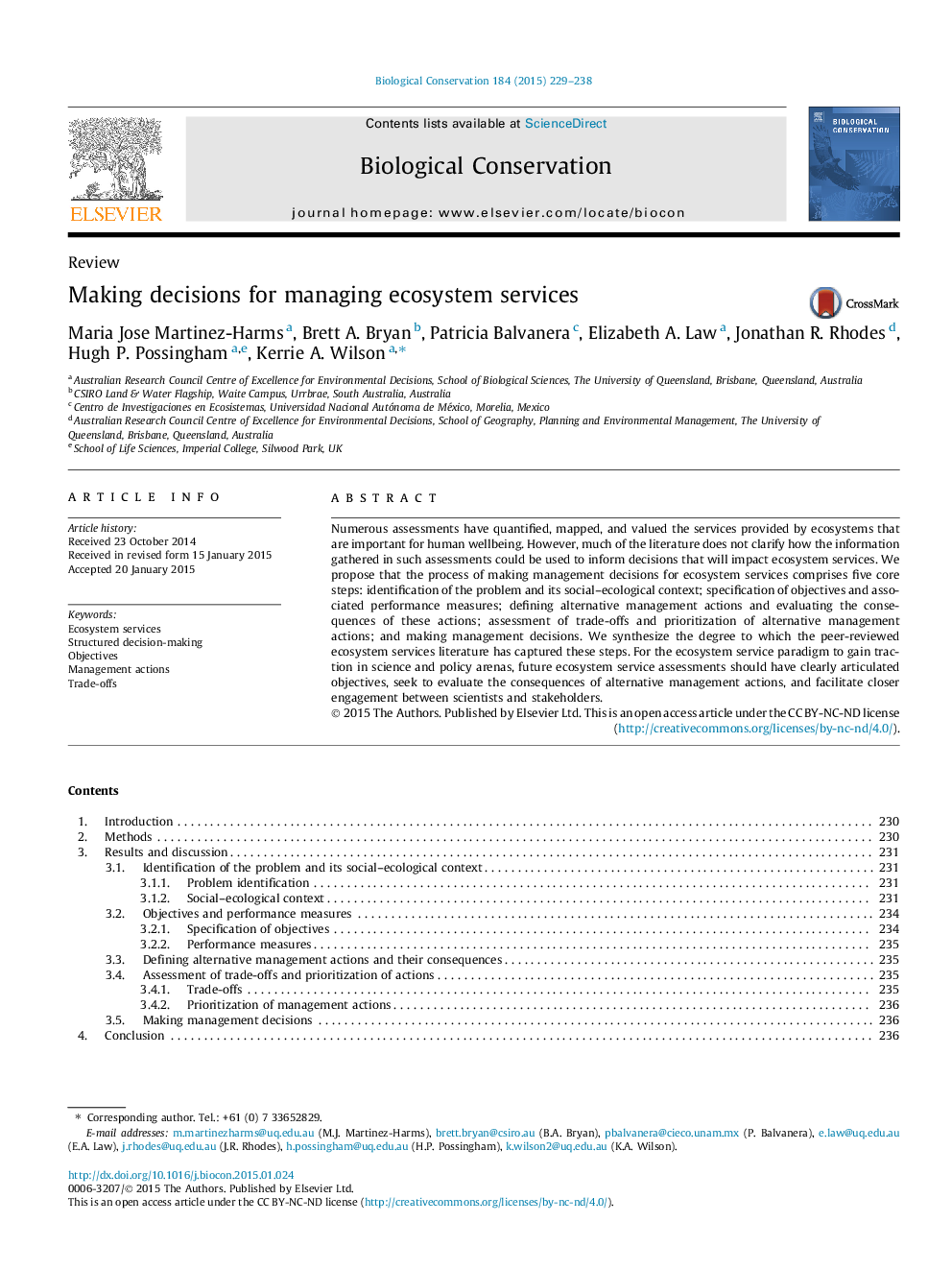| Article ID | Journal | Published Year | Pages | File Type |
|---|---|---|---|---|
| 6299989 | Biological Conservation | 2015 | 10 Pages |
Abstract
Numerous assessments have quantified, mapped, and valued the services provided by ecosystems that are important for human wellbeing. However, much of the literature does not clarify how the information gathered in such assessments could be used to inform decisions that will impact ecosystem services. We propose that the process of making management decisions for ecosystem services comprises five core steps: identification of the problem and its social-ecological context; specification of objectives and associated performance measures; defining alternative management actions and evaluating the consequences of these actions; assessment of trade-offs and prioritization of alternative management actions; and making management decisions. We synthesize the degree to which the peer-reviewed ecosystem services literature has captured these steps. For the ecosystem service paradigm to gain traction in science and policy arenas, future ecosystem service assessments should have clearly articulated objectives, seek to evaluate the consequences of alternative management actions, and facilitate closer engagement between scientists and stakeholders.
Related Topics
Life Sciences
Agricultural and Biological Sciences
Ecology, Evolution, Behavior and Systematics
Authors
Maria Jose Martinez-Harms, Brett A. Bryan, Patricia Balvanera, Elizabeth A. Law, Jonathan R. Rhodes, Hugh P. Possingham, Kerrie A. Wilson,
